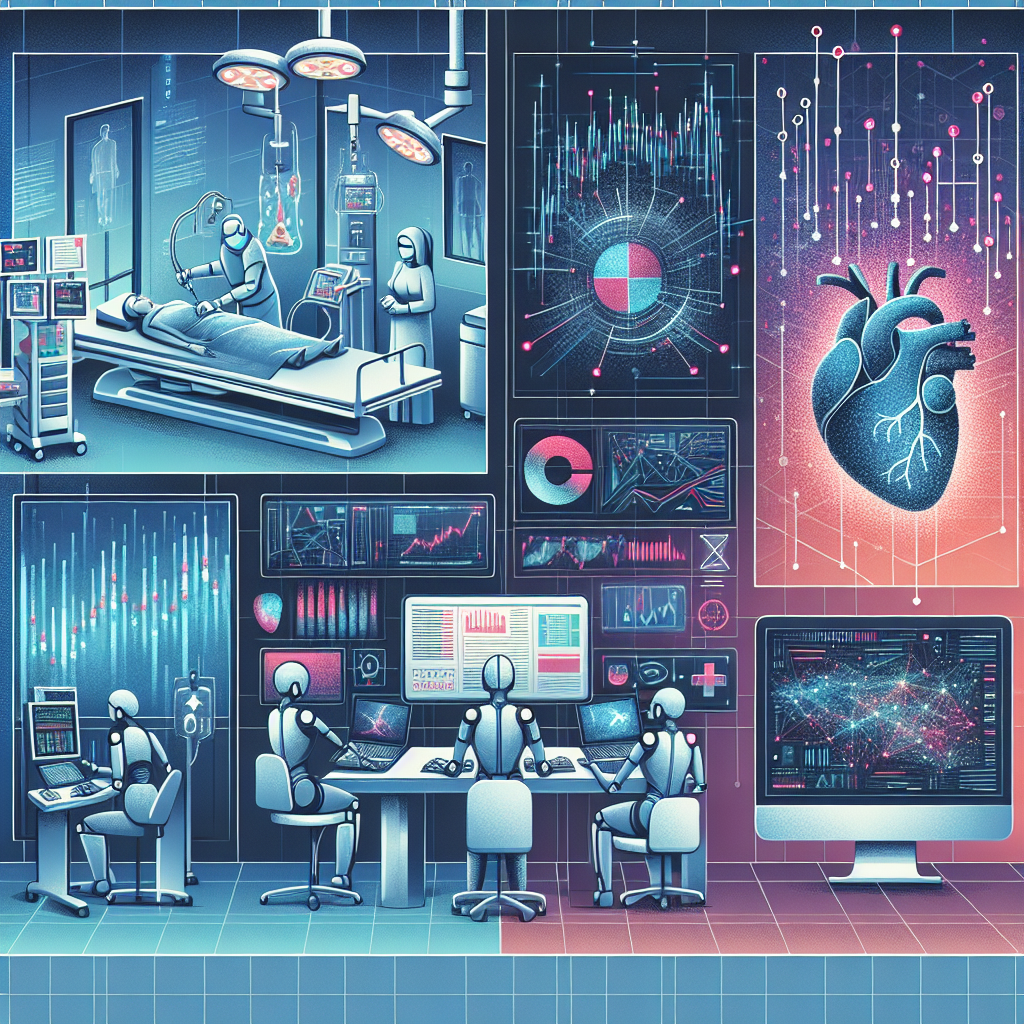Artificial General Intelligence (AGI) is a technology that has the potential to revolutionize various industries, including healthcare, finance, and more. AGI refers to a form of artificial intelligence that can perform any intellectual task that a human can do. This means that AGI has the ability to learn, understand, and apply knowledge across a wide range of domains, making it a powerful tool for solving complex problems and making informed decisions.
In this article, we will explore the possibilities of AGI in healthcare, finance, and other industries, as well as address some frequently asked questions about this emerging technology.
Healthcare
The healthcare industry stands to benefit greatly from the implementation of AGI. With the vast amount of data generated in the healthcare sector, AGI can help in analyzing this data to identify patterns, trends, and insights that can improve patient care and outcomes.
One of the key applications of AGI in healthcare is in medical diagnosis and treatment. AGI can process and analyze patient data, including medical records, lab results, imaging scans, and more, to assist healthcare providers in diagnosing diseases and recommending the most effective treatment plans.
AGI can also be used to develop personalized medicine approaches, where treatments are tailored to individual patients based on their genetic makeup, lifestyle, and other factors. This can lead to more effective and targeted therapies, reducing the risk of adverse reactions and improving patient outcomes.
Finance
In the finance industry, AGI can be used to analyze market trends, predict stock prices, and optimize investment strategies. By processing and analyzing large amounts of financial data, AGI can identify patterns and trends that human analysts may overlook, leading to more informed investment decisions.
AGI can also be used in risk management and fraud detection. By analyzing transaction data and identifying anomalies, AGI can help financial institutions detect and prevent fraudulent activities, reducing the risk of financial losses and protecting customer assets.
Other Industries
AGI has the potential to disrupt and transform a wide range of industries beyond healthcare and finance. In manufacturing, AGI can optimize production processes, improve quality control, and automate repetitive tasks, leading to increased efficiency and productivity.
In transportation, AGI can be used to optimize route planning, monitor vehicle performance, and improve safety measures. By analyzing real-time data from sensors and cameras, AGI can help autonomous vehicles navigate complex environments and make split-second decisions to avoid accidents.
In agriculture, AGI can optimize crop management, monitor soil health, and predict crop yields. By analyzing weather patterns, soil conditions, and other factors, AGI can help farmers make data-driven decisions to maximize crop yields and minimize environmental impact.
FAQs
What is the difference between AGI and narrow AI?
AGI refers to a form of artificial intelligence that can perform any intellectual task that a human can do, while narrow AI is designed to perform a specific task or set of tasks. AGI has the ability to learn, understand, and apply knowledge across a wide range of domains, making it more versatile and adaptable than narrow AI.
How is AGI different from human intelligence?
While AGI has the ability to perform any intellectual task that a human can do, it is still limited in many ways compared to human intelligence. AGI lacks the emotional intelligence, creativity, and intuition that humans possess, making it less capable of understanding complex social interactions and making moral judgments.
What are the ethical implications of AGI?
As with any emerging technology, AGI raises ethical concerns related to privacy, security, bias, and accountability. It is important for developers and policymakers to address these concerns and ensure that AGI is used responsibly and ethically to benefit society as a whole.
In conclusion, AGI has the potential to revolutionize various industries, including healthcare, finance, and more, by analyzing data, identifying patterns, and making informed decisions. By exploring the possibilities of AGI in different industries and addressing ethical concerns, we can harness the power of this technology to improve lives and drive innovation.

